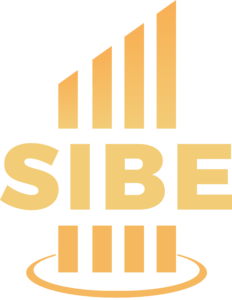Ghana’s startup ecosystem is brimming with potential, thanks to its youthful population. With many young Ghanaians venturing into entrepreneurship, there’s no doubt that the business landscape in Ghana is evolving. If you are looking to tap into this evolving market and start a business of your own, securing funding for your business in Ghana is a crucial step towards success.
In this comprehensive guide, we will explore various funding options tailored to businesses in Ghana, considering both the pros and cons of each source.
The Ghanaian Entrepreneurial Spirit
Ghana boasts a youthful demographic, with a significant portion of its population being between 18 and 60 years old. Many young Ghanaians have embraced entrepreneurship as a means of economic empowerment and job creation due to the high rates of unemployment in the country.
And the abundance of startups in a variety of industries, from technology and agriculture to fashion and hospitality, is proof of this nation’s entrepreneurial spirit.
However, turning entrepreneurial dreams into reality often requires substantial capital. Fortunately, there are several funding options available for businesses in Ghana, each with its own set of advantages and challenges.
Let’s delve into these funding sources, understanding what they entail and how you can access them.
Venture Capital
Venture Capital (VC) is a specialised form of private equity financing that is typically directed towards early-stage startups or high-growth companies with the potential for significant returns on investment. VC firms provide funding in exchange for ownership equity in the company, which means they become shareholders and have a vested interest in the company’s success.
The Venture Capital Trust Fund and Oasis Capital are two organisations in Ghana that represent the venture capital landscape.
These firms identify promising startups and businesses and provide them with the financial resources needed to accelerate their growth and expansion plans. Venture capitalists often play an active role in guiding the companies they invest in, offering strategic business consulting advice, industry expertise, and valuable connections to help them succeed.
The key characteristic of venture capital is its risk-taking nature. VC firms are willing to invest in businesses that may have high growth potential but are also associated with a higher level of risk. They do so with the expectation that if the company succeeds, the returns on their investment will be substantial, often making up for the risk taken on unsuccessful investments.
Venture capital is an essential source of funding for your business in Ghana and for many innovative startups and technology-driven companies, providing them with the capital needed to develop groundbreaking products, expand into new markets, and ultimately achieve a competitive edge in their respective industries.
Pros of Venture Capital funding for your business in Ghana
Substantial Capital Injection: Venture capital firms typically invest significant sums of money, which can fuel rapid growth and expansion.
Expertise and Mentorship: Beyond funding, venture capitalists often provide valuable guidance and industry-specific expertise, helping startups navigate challenges.
Networking Opportunities: Partnering with a venture capital firm can open doors to a vast network of contacts, potential clients, and collaborators.
Cons of Venture Capital funding for your business in Ghana
High Competition: Securing venture capital funding is highly competitive, with numerous startups vying for limited resources.
Loss of Control: Accepting venture capital often entails relinquishing a portion of ownership and decision-making authority.
Stringent Due Diligence: Venture capitalists conduct thorough due diligence, scrutinising your business’s financials, operations, and growth potential.
Angel Investors
Angel investors, often referred to as “angels,” are high-net-worth individuals or groups who invest their personal capital into early-stage startups and small businesses. These individuals are typically experienced entrepreneurs, business professionals, or industry experts who have achieved financial success in their own careers.
Angel investors provide funding to help startups grow and succeed in exchange for equity ownership in the company or convertible debt that can later be converted into equity.
Angel investors play a vital role in Ghana’s entrepreneurial ecosystem, offering entrepreneurs like you a means of funding for your business in Ghana. They offer not only financial support but also valuable mentorship, industry connections, and business expertise to the startups they invest in. This combination of capital and guidance can be crucial for startups in their early stages of development, helping them navigate challenges, refine their business strategies, and scale their operations.
Various organisations and networks exist to connect entrepreneurs with potential angel investors in Ghana. The African Business Angel Network, the Accra Angels Network, and the Ghana Angel Investors Network are examples of such entities that serve as intermediaries, facilitating the matchmaking process between startups seeking funding and angel investors looking for investment opportunities.
Angel investors are known for their willingness to take calculated risks on promising startups, and their investments often fill the funding gap that exists between the initial seed stage and more significant venture capital investments. This makes them a valuable source of funding for entrepreneurs and early-stage businesses aiming to turn their innovative ideas into successful enterprises.
Pros of Angel Investors
Quick Access to Capital: Angel investors can provide a speedy injection of capital, helping startups tackle immediate needs.
Valuable Advice and Connections: Many angel investors have extensive experience in business and can offer valuable advice and industry connections.
Flexibility in Negotiations: Compared to institutional investors, angel investors may offer more flexible terms and conditions.
Cons of Angel Investors
Limited Funds: Angel investors typically have limited funds to allocate, which may not fully meet your capital requirements.
Equity Trade-Off: Accepting angel investment often means giving up a portion of your company’s ownership.
Finding the Right Investor: Identifying and connecting with the right angel investor can be challenging and time-consuming.
Crowdfunding
Crowdfunding is a contemporary method of financing that allows individuals, businesses, and startups to raise capital by soliciting contributions or investments from a large and diverse group of people, typically through online platforms or websites.
This approach harnesses the power of the internet and social networks to reach a broad community of potential backers, often referred to as the “crowd,” who can contribute varying amounts of money to support a particular project, business, or cause.
In a crowdfunding campaign, the initiator, whether it’s an entrepreneur, artist, nonprofit organisation, or inventor, sets a funding goal and creates a compelling pitch or presentation that explains the project or business idea, its objectives, and why financial support is needed. These campaigns are hosted on crowdfunding platforms, which serve as intermediaries between the project creator and the crowd of potential backers.
There are several crowdfunding models, including:
Donation-Based Crowdfunding: Individuals contribute to a project or cause without expecting any financial return. This model is often used for charitable causes, creative projects, or community initiatives.
Rewards-Based Crowdfunding: Backers receive non-financial rewards or incentives in exchange for their contributions. These rewards can include early access to products, special perks, or exclusive experiences.
Equity Crowdfunding: Investors receive equity or ownership shares in the business or project in return for their contributions. This model is commonly used for startups and small businesses looking to raise capital by selling shares to a group of investors.
Debt-Based Crowdfunding (Peer-to-Peer Lending): Backers provide loans to the project creator or business, and they expect repayment with interest over time.
Real Estate Crowdfunding: This model involves pooling funds from multiple investors to finance real estate projects, such as property development or rental properties.
In Ghana, crowdfunding platforms like GoFundMe, GoGetFunding, Farmable, and Crowdfrica offer opportunities for entrepreneurs, creatives, and individuals like you to initiate crowdfunding campaigns and raise funding for your business in Ghana.
Whether it’s launching a new product, supporting a social cause, or funding a creative project, crowdfunding has become a popular and accessible way for individuals and businesses in Ghana to secure the financial resources they need to bring their ideas and initiatives to life.
Pros of Crowdfunding
Global Access: Crowdfunding platforms provide access to a global community of potential backers, expanding your reach beyond geographical boundaries.
Lower Barriers to Entry: Crowdfunding is often more accessible than traditional financing methods, making it suitable for early-stage startups.
Market Validation and Awareness: A successful crowdfunding campaign can validate your business idea and generate brand awareness.
Cons of Crowdfunding
Campaign Risks: There’s no guarantee of success in crowdfunding campaigns; if you don’t reach your funding goal, you may not receive any funds.
Platform Fees: Crowdfunding platforms typically charge fees and commissions, reducing the total funds you receive.
Shareholder Expectations: Backers may have expectations for returns or involvement in your business, which can lead to challenges in managing shareholder relations.
Government Grants and Programmes
The government spends millions of dollars on grants each year. The Ghanaian government establishes and funds initiatives to provide financial assistance, resources, and incentives to local businesses and entrepreneurs. These programmes aim to promote economic development, job creation, innovation, and sustainable growth within the country.
Government grants and programmes are typically designed to address specific challenges or opportunities within various sectors of the economy. Some key examples of government grants and programmes in Ghana include:
National Entrepreneur and Innovation Programme (NEIP): NEIP is a flagship programme designed to support the development and growth of startups and small and medium-sized enterprises (SMEs) in Ghana. It offers a range of services, including training, mentorship, access to funding, and capacity-building initiatives, to empower entrepreneurs and enhance their competitiveness in the global market.
YouStart: YouStart is a youth-focused initiative that provides financial support and capacity-building opportunities to young entrepreneurs in Ghana. It aims to equip young people with the skills, resources, and funding needed to start and grow their businesses.
Women MSME Programme: This programme focuses on supporting women-led micro, small, and medium-sized enterprises (MSMEs) in Ghana. It provides financial assistance, training, and access to markets to empower women entrepreneurs and enhance their participation in the business sector.
Agricultural Support Programs: The Ghanaian government also offers various agricultural support programmes, including grants and subsidies, to boost agricultural productivity and ensure food security. These programmes often target smallholder farmers and agribusinesses.
These government grants and programmes often have specific eligibility criteria, application processes, and reporting requirements that businesses must adhere to in order to access funding or support. They play a crucial role in fostering entrepreneurship, innovation, and economic development in Ghana, helping businesses overcome financial barriers and promoting a more vibrant and competitive business environment.
Pros of Government Grants and Programmes for funding for your business in Ghana
Non-Repayable Funds: Government grants are typically non-repayable, providing a valuable source of capital without incurring debt.
Sector-Specific Support: Some grants focus on specific sectors or industries, tailoring support to the unique needs of businesses in those areas.
Credibility: Government backing can enhance your business’s credibility and reputation.
Cons of Government Grants and Programmes for funding for your business in Ghana
Competitive Application Process: Government grant programmes are often highly competitive, with many applicants vying for limited funds.
Eligibility Criteria and Documentation: Grants come with stringent eligibility criteria and extensive documentation requirements, necessitating thorough preparation.
Limited Funds and Delays: Government grants may have limited funds available, and the approval process can be time-consuming, leading to delays.
Bank loans
Bank loans are a conventional form of financial assistance provided by commercial banks and financial institutions to individuals, businesses, and organizations. These loans involve borrowing a specific amount of money from a bank with the commitment to repay the borrowed funds along with interest over a predetermined period. Bank loans are a widely used source of financing for various purposes, including business expansion, working capital, asset acquisition, debt consolidation, and more.

Key characteristics of bank loans include:
Principal Amount: The principal amount is the sum of money borrowed from the bank. It represents the initial amount that the borrower receives and is expected to repay.
Interest: Banks charge interest on the loan amount as compensation for lending the funds. Interest rates can vary depending on factors such as the type of loan, the borrower’s creditworthiness, and prevailing market conditions.
Loan Term: The loan term refers to the duration over which the borrower is expected to repay the loan. Loan terms can range from a few months to several years, depending on the type of loan and the agreement between the borrower and the bank.
Collateral: Some bank loans may require collateral, which is an asset of value (such as real estate, equipment, or inventory) that the borrower pledges as security for the loan. If the borrower fails to repay the loan, the bank may seize the collateral to recover the outstanding debt.
Repayment Schedule: Borrowers are typically required to make regular repayments, which may be monthly, quarterly, or according to a predetermined schedule. Each repayment consists of both principal and interest.
Application and Approval Process: To obtain a bank loan, borrowers must go through an application and approval process, which includes submitting financial documents, business plans (for business loans), and other required information. Banks evaluate the creditworthiness and financial stability of the borrower before approving the loan.
In Ghana, several commercial banks and financial institutions offer various types of business loan products to entrepreneurs, businesses, and individuals. These loans can support a wide range of financial needs, from starting a new business venture to expanding existing operations or addressing short-term cash flow challenges. Businesses in Ghana can explore different loan options offered by banks to access the capital required for their growth and development.
Pros of Bank Loans
Structured Repayments: Bank loans typically come with structured repayment terms, making it easier for businesses to budget and plan for repayments.
Lower Interest Rates with Collateral: Securing a bank loan with collateral can lead to lower interest rates compared to unsecured loans.
Cons of Bank Loans
Strict Credit Requirements: Banks have stringent credit requirements, making it challenging for startups or businesses with limited credit history to qualify.
Collateral Requirements: Many banks require collateral, which can be a significant obstacle for businesses without valuable assets.
Repayment Obligations: Taking on a bank loan means committing to regular repayments, which can strain cash flow, especially in the early stages.
Internal Funding
Internal funding, often referred to as self-funding or bootstrapping, is a method of financing a business by using its own internal resources, such as personal savings or profits generated from its operations. This approach allows businesses to fund their operations, growth, and expansion without relying on external sources of capital, such as loans, investments, or grants.
Key aspects of internal funding include:
Personal Savings: Entrepreneurs or business owners use their own personal savings to fund the business. This can involve investing personal funds, retirement savings, or other personal assets into the business.
Profits and Revenues: Businesses finance their operations and growth using the profits and revenues generated from their day-to-day activities. This can include reinvesting a portion of the earnings back into the business for expansion, purchasing assets, or covering operational expenses.
Retained Earnings: For established businesses, retained earnings are accumulated profits that have not been distributed to shareholders as dividends. These earnings can be reinvested in the company to support growth and capital requirements.
Cost Management: Effective cost management and budgeting practises are essential for businesses utilising internal funding. By controlling expenses and optimising cash flow, businesses can allocate resources more efficiently for growth.
Using internal funding for your business in Ghana is a viable option for entrepreneurs and business owners who have accumulated personal savings or whose businesses generate consistent profits. It provides a means to start and sustain a business without relying on external sources of capital. However, businesses should carefully assess their financial situation, risk tolerance, and growth objectives when considering internal funding as a financing strategy.
Pros of Internal Funding
Full Control: Business owners retain full control over their operations and do not dilute ownership or take on external debt.
No Interest or Equity Costs: Unlike loans or equity financing, internal funding does not incur interest payments or require giving up ownership shares.
Flexibility: Business owners have the flexibility to allocate funds according to their priorities and business needs.
Cons of Internal Funding
Limited Initial Capital: The amount available for internal funding is typically limited to the personal savings of the business owner or the profits generated by the business, which may not be sufficient for significant growth or expansion.
Risk to Personal Finances: Using personal savings to fund the business carries the risk of impacting the owner’s personal financial stability if the business encounters financial challenges.
Slower Growth: Without access to substantial external capital, the growth of the business may be slower compared to well-funded competitors.
The Bottom Line: Funding for your business in Ghana
Securing funding is a crucial step for entrepreneurs looking to establish their businesses in Ghana. The country’s youthful population and entrepreneurial spirit have set the stage for exciting opportunities. However, each funding source comes with its own set of pros and cons, making it essential to tailor your approach to your business’s unique needs and stage of development.
Whether you opt for venture capital, angel investors, crowdfunding, government grants, bank loans, or internal funds, as a means of funding for your business in Ghana, thorough preparation and a clear understanding of the associated processes are key to success. With determination, a well-crafted compelling business plan, and a strategic approach to funding, you can harness the potential of Ghana’s burgeoning business landscape and turn your entrepreneurial dreams into reality.





